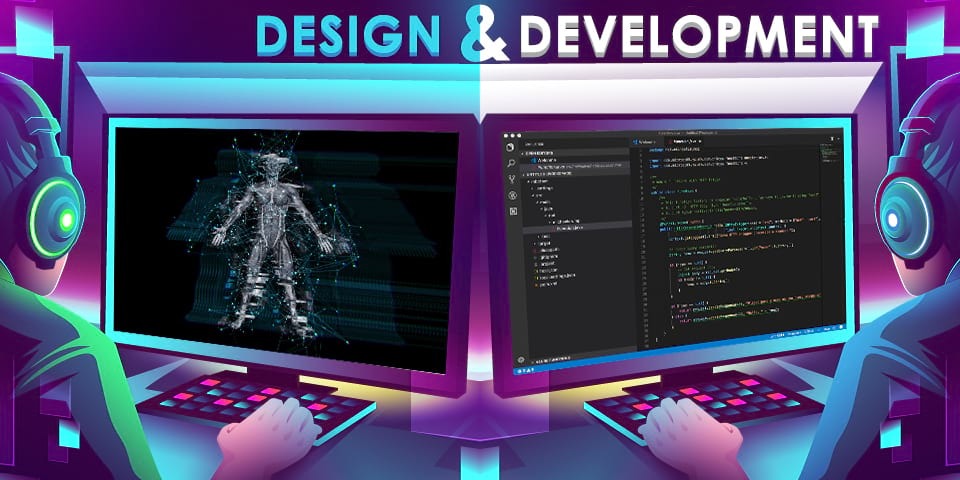Mental Health App Development: Revolutionizing Wellness Through Technology
Explore the importance, features, challenges, and future trends of mental health app development for accessible and effective emotional well-being solutions.

In today’s fast-paced world, mental health has become a critical concern. With increasing awareness and reduced stigma surrounding mental health issues, the demand for accessible, affordable, and effective solutions has skyrocketed. Mental health app development is at the forefront of this revolution, providing users with tools to manage their emotional well-being, track their moods, and connect with mental health professionals from the comfort of their homes. In this article, we will explore the key aspects of mental health app development, its benefits, challenges, and the future it holds.
Why Mental Health Apps Are Important
Mental health apps serve as a bridge between individuals and mental health resources. They provide:
-
Accessibility: For people living in remote areas or those unable to afford traditional therapy, mental health apps offer a convenient alternative.
-
Anonymity: Many users feel more comfortable seeking help through apps where they can remain anonymous.
-
Affordability: Compared to in-person therapy sessions, mental health apps are often more cost-effective.
-
Self-Help Tools: These apps include features like guided meditations, cognitive behavioral therapy (CBT) exercises, and mood tracking to help users manage stress, anxiety, and depression.
Features of a Successful Mental Health App
When developing a mental health app, it is crucial to incorporate features that cater to the diverse needs of users. Here are some essential features:
1. Mood Tracking
A mood tracking feature allows users to log their emotions daily. This data can help users identify patterns and triggers, providing valuable insights into their mental health. For instance, mood tracking app development focuses on creating intuitive interfaces and analytics tools to visualize emotional trends.
2. Personalized Content
Personalization is key to user engagement. Apps can use AI to recommend exercises, articles, or therapy sessions tailored to individual needs.
3. Professional Support
Connecting users with licensed therapists or counselors through chat, video, or phone calls can significantly enhance the app’s credibility and effectiveness.
4. Mindfulness and Meditation Tools
Guided meditations, breathing exercises, and mindfulness practices are essential for helping users manage stress and improve focus.
5. Gamification
Adding gamified elements like streaks, badges, or rewards can motivate users to stay consistent with their mental health routines.
6. Community Support
Forums or group chats where users can share experiences and support each other create a sense of belonging and reduce feelings of isolation.
Steps to Develop a Mental Health App
Creating a mental health app involves several critical steps:
1. Market Research
Understand your target audience and analyze existing apps to identify gaps and opportunities. Determine what features resonate most with users and how your app can stand out.
2. Define Your Purpose
Clearly outline the problem your app aims to solve. Whether it’s providing access to therapy, promoting mindfulness, or tracking moods, having a focused purpose will guide development.
3. Design and Development
Prioritize user-friendly design and seamless navigation. Collaborate with developers to ensure the app is intuitive, responsive, and visually appealing.
4. Incorporate Security Measures
Since mental health apps deal with sensitive user data, robust security measures like encryption and compliance with regulations (e.g., HIPAA) are non-negotiable.
5. Testing and Feedback
Conduct rigorous testing to identify and fix bugs. Gather feedback from beta users to refine features and improve user experience.
6. Launch and Market
Once the app is ready, launch it on popular platforms like iOS and Android. Use targeted marketing strategies to reach your audience and build awareness.
Challenges in Mental Health App Development
While the potential benefits are immense, mental health app development comes with its own set of challenges:
1. Data Privacy
Protecting user data is paramount. Developers must adhere to strict data privacy laws and ensure users feel confident about sharing personal information.
2. Scientific Validation
Apps must be backed by credible psychological theories and practices. Collaborating with mental health professionals during development can help ensure the app’s content is accurate and effective.
3. User Engagement
Maintaining user engagement over time is challenging. Developers need to continuously update content, introduce new features, and use push notifications judiciously to keep users active.
4. Diversity and Inclusion
Mental health apps must cater to diverse user groups, considering factors like age, culture, and language. Inclusivity can significantly broaden an app’s appeal.
The Future of Mental Health App Development
The future of mental health app development is promising, with advancements in technology paving the way for more sophisticated solutions:
1. AI and Machine Learning
AI can analyze user data to provide personalized recommendations, predict mental health crises, and offer real-time support.
2. Wearable Integration
Integration with wearables like smartwatches can enable real-time tracking of physiological indicators like heart rate and sleep patterns, offering deeper insights into mental health.
3. Virtual Reality (VR)
VR can simulate therapeutic environments for exposure therapy or relaxation exercises, making mental health interventions more immersive.
4. Global Accessibility
As internet penetration increases, mental health apps can reach underserved populations worldwide, democratizing access to mental health resources.
Conclusion
Mental health app development is transforming how individuals approach mental wellness. By offering accessible, affordable, and effective solutions, these apps empower users to take charge of their mental health. Despite the challenges, the future holds immense potential, with innovations like AI, wearables, and VR leading the way. For developers and entrepreneurs, investing in this domain not only promises financial returns but also contributes to a healthier, happier society.
Whether it’s through mood tracking, professional support, or mindfulness exercises, mental health apps are a testament to the power of technology in improving lives. The journey of mental health app development is just beginning, and its impact will only grow in the years to come.













